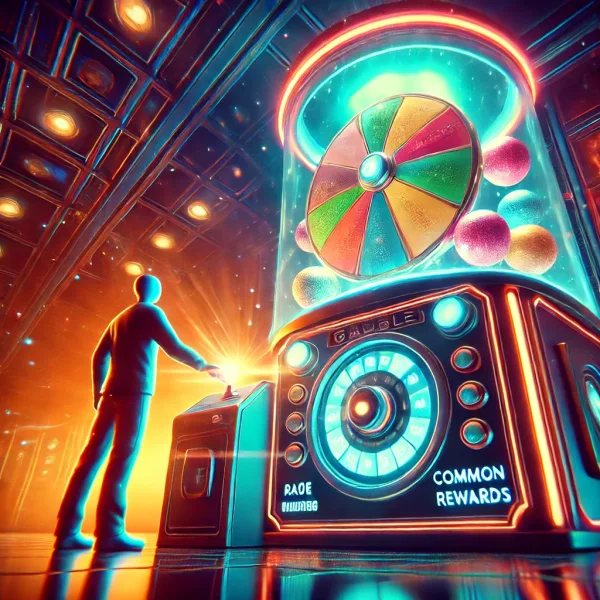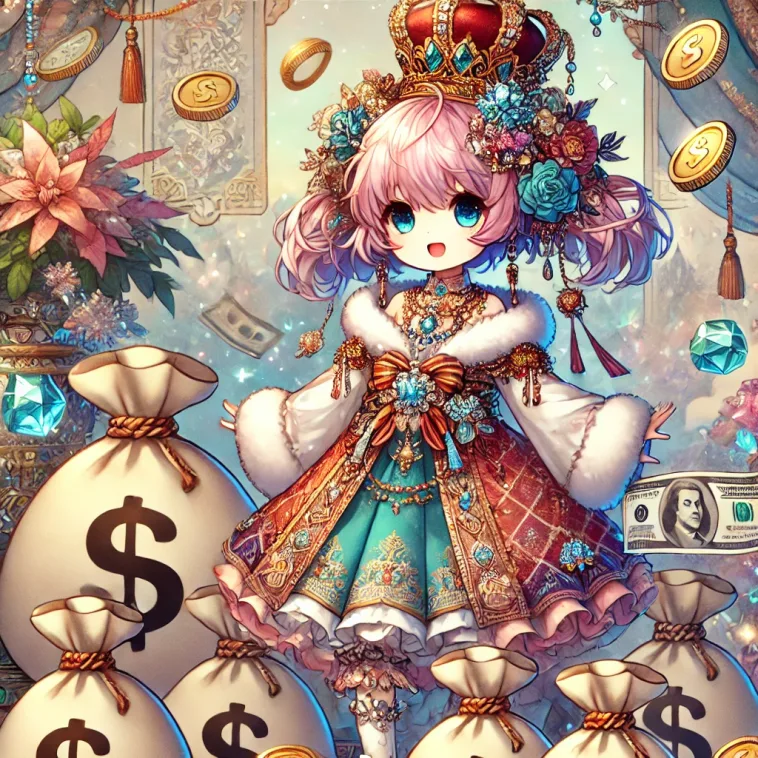Let’s get ready to break down the latest updates on Infinity Nikki, the glamorous open-world dress-up game that’s as addictive as it is expensive. Today, we’ll cover its new features, staggering revenue, and the psychology of gacha mechanics. We’ll also tackle the age-old argument: “Aren’t players choosing to gamble?” and discuss the role of pity systems in softening the blow of RNG (random number generation).
Infinity Nikki’s Revenue: Players Are Spending Big
Since its launch, Infinity Nikki has proven to be a massive financial success—but at what cost to players?
- $16 Million in First-Month Revenue:
- The game brought in $16 million globally within its first month on mobile.
- China accounted for $10.1 million (63%), while U.S. players spent $2.3 million. (Source: GamesIndustry.biz)
- High Stakes for Full Sets:
- Completing an outfit set can require up to 180 pulls due to low drop rates for rare items.
- With in-game currencies priced steeply, some players report spending hundreds of dollars for one banner.
These numbers highlight the tension between player choice and game design: yes, players choose to spend, but they do so within a system engineered to maximize engagement and spending.
Updates and Gacha Mechanics
Shooting Star Season
The Shooting Star Season, launched December 30, brought:
- Wish Festival Banners: Featuring exclusive outfits, like a gold-and-white dress granting Nikki the ability to float.
- Revelation Crystals: Used for these limited-time banners, creating urgency to pull before the event ends.
Pity System
A notable feature in Infinity Nikki (and many gacha games) is the pity system, which guarantees rewards after a set number of pulls:
- For example, if players fail to pull a rare outfit after 90 attempts, they’re guaranteed to receive it on their next pull.
- Why It’s Important: This system reduces the frustration of randomness, giving players a light at the end of the tunnel. However, it also incentivizes spending to “reach pity” when players are close but out of resources.
The Psychology of Gacha: Are Players Choosing to Gamble?

A common argument against regulating gacha games is that players willingly choose to spend their money. While this is true in theory, gacha mechanics exploit psychological principles that make informed decision-making difficult:
1. Dopamine and RNG
- The Rush: Every pull has a small chance of delivering a rare item, releasing dopamine. This is identical to what happens when pulling a slot machine.
- Near-Miss Effect: Being one pull away from pity or just shy of completing a set creates a powerful urge to keep going.
2. Fear of Missing Out (FOMO)
- Limited-time banners create urgency, compelling players to spend now or risk missing out forever.
- Social proof, such as seeing other players with rare outfits, amplifies FOMO.
3. Loss Aversion
- Players who have already invested heavily in pulls feel compelled to “finish the job,” not wanting their previous spending to go to waste.
The Role of Personal Responsibility: The Intentional Design of Psychological Traps
Yes, players are the ones clicking “Purchase,” but let’s not pretend this is happening in a neutral environment. Infinity Nikki’s gacha mechanics are deliberately designed to capitalize on impulsive decision-making. If the game’s design prioritized thoughtful choices, we’d see safeguards built in—but we don’t.
How the Design Pushes Spending
- Time-Limited Sets
- Limited-time banners create artificial scarcity, forcing players to act before they can think. If outfits were permanently available, players could weigh their options. Instead, the fear of “missing out forever” drives impulsive spending.
- Seamless Spending Process
- The ease of buying in-game currency eliminates friction. There’s no need to think critically or stop to reevaluate—everything is designed to keep the dopamine flowing.
- No Built-In Spending Limits
- Unlike casinos, Infinity Nikki has no mechanisms to slow players down. Spending caps or daily limits would introduce friction, breaking the FOMO-driven loop and encouraging thoughtful decision-making. But these don’t exist, because friction would hurt revenue.
A Balanced Approach
While players do bear responsibility for their choices, the system they’re engaging with is engineered to encourage overspending. This isn’t just a matter of “poor decision-making”; it’s a carefully crafted psychological trap.
Lessons from Casinos: Responsible Gambling Measures
Casinos were once the Wild West, but public outcry and regulation forced them to implement Responsible Gambling (RG) measures. These include:
- Transparency: Casinos must disclose odds for all games.
- Spending Limits: Players can set daily or monthly caps.
- Self-Exclusion Programs: Voluntary bans allow players to restrict their own access.
- Hotlines and Counseling: Support for problem gamblers is widely available.
What Gacha Games Can Learn:
- Odds Transparency: While many gacha games disclose drop rates, they could do more, like showing cumulative probabilities.
- Spending Caps: Developers could let players set monthly limits on spending.
- Cooldown Periods: Introduce pauses after excessive pulls, giving players time to reconsider.
- Self-Exclusion: Add features allowing players to block themselves from making purchases.
Why Infinity Nikki Needs Responsible Spending Measures
Despite its success, Infinity Nikki lacks robust player protections. The game’s reliance on gacha for revenue means players can easily overspend chasing limited-time outfits. Given the game’s $16 million first-month haul, it’s clear that these mechanics aren’t just optional—they’re a core part of its design.
Conclusion: A Call for Change
Infinity Nikki is a masterclass in game design, but it’s also a glaring example of why gacha mechanics need regulation—or at least voluntary safeguards. Players deserve a fair chance to enjoy these games without risking their financial stability.
As developers, gamers, and industry enthusiasts, we can push for a better balance between entertainment and responsibility. Because no outfit, no matter how stunning, should cost someone their financial well-being.
Stay sharp, code responsibly, and game on!



